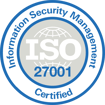Visa de travail
Une demande pour ce visa de travail dans le cadre de la politique générale de l'emploi GEP (General Employment Policies) doit répondre à un certain nombre de paramètres, qui peuvent varier légèrement en fonction de la nationalité du demandeur. La durée du visa est de deux ans, après quoi il peut être prolongé pour trois ans.
Critères d'éligibilité
Démontrer que l'employé possède des connaissances ou une expérience qui ne sont pas facilement disponibles à Hong Kong.
Demande de visa
Les principaux documents exigés du demandeur sont des documents d'identité (Passeport, formulaire de demande…) ainsi que certains documents prouvant l'expérience académique et professionnelle du demandeur (diplôme, références des précédents employeurs, etc.).
D'autre part, l'entreprise doit fournir des documents spécifiques à l'emploi du demandeur comme un business plan détaillé, le contrat de travail, la photocopie du certificat d’enregistrement de l’entreprise, Etc. Le délai d'approbation du visa est généralement de 6 à 8 semaines après réception de tous les documents.




























